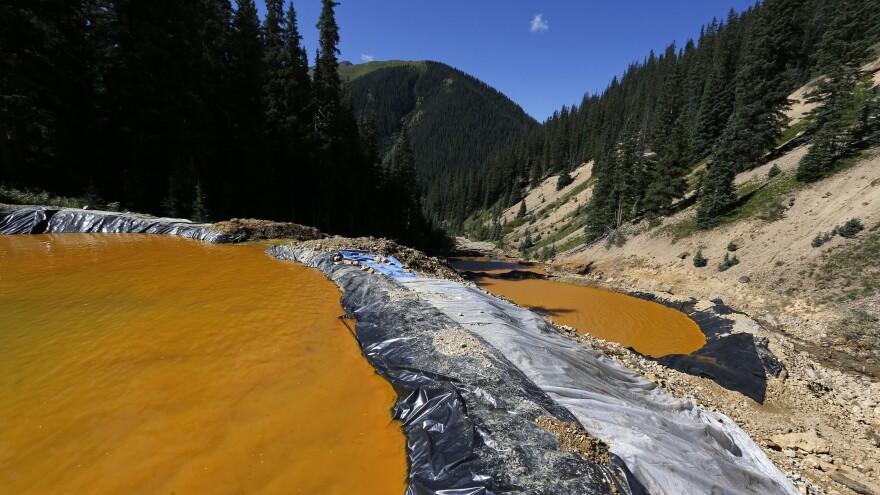Thirteen months after an Environmental Protection Agency mistake sent millions of gallons of bright orange wastewater into a Colorado river, the agency has declared the Gold King Mine and 47 other locations in the region Superfund sites, Colorado Public Radio reports.
"The Environmental Protection Agency accidentally spilled 3 million gallons of orange wastewater when studying the mine in August 2015. Many mines in the area drain thousands of gallons of water laced with heavy metals every day. Clean-up in the area is highly complex, and expensive."
Sites in California, Indiana, Louisiana, Montana, New York, Ohio, Puerto Rico, Texas and West Virginia also were added to the Superfund list Wednesday, the Associated Press reports.
Officials told CPR that the cleanup will cost millions of dollars and take years or even decades.
The 2015 spill into the Animas River, which was laced with mercury and arsenic, had already cost the EPA $29 million for response and water-quality monitoring, CPR's Grace Hood reported in August. That spill is ongoing, she noted — at the time sending 500 gallons of water a minute into the river.
The state of New Mexico, where the water wound up, "has enough unresolved questions that it filed suit against both the EPA and Colorado." The Navajo Nation also has sued, the AP reports, and the state of Utah is likely to file as well.
The problem isn't limited to these newly-declared Superfund sites, Hood reported:
"The country hasn't made much progress on fixing abandoned mines across the West.
" 'There are still tens of thousands of those throughout the country that still need attention,' says Doug Young, a senior analyst at the Denver-based Keystone Center, which focuses on science and public policy."
Copyright 2020 NPR. To see more, visit https://www.npr.org. 9(MDAxMzY2MjQ0MDEyMzcyMDQ5MzBhZWU5NA001))



